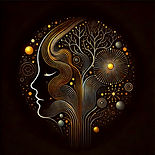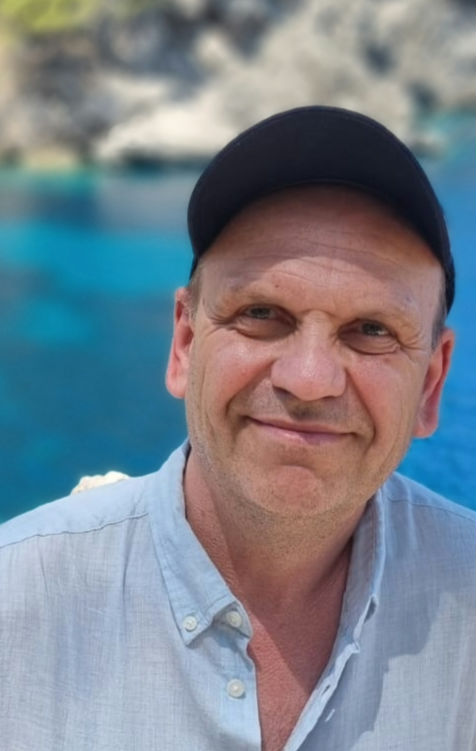“How can you think like a philosopher?”
- Frank Börner
- Feb 4, 2025
- 3 min read
Julian Baggini „How to Think Like a Philosopher“
Philosophy: A Guide to Thinking in a Chaotic World
“How can you think like a philosopher?” At first, this might sound elitist, academic, or just irrelevant to your everyday life. Philosophy – isn’t that something for professors? Think again. Thinking like a philosopher doesn’t mean reading dusty books or sitting in lecture halls. It’s not about Aristotle or Kant – it’s about you and how you perceive the world.
Philosophy may be ancient, but it has never been more urgent than today – in a world full of fake news, online debates, crises, and uncertainties. It’s not about solving every question – it’s about asking the right ones. Julian Baggini’s “How to Think Like a Philosopher” is exactly what you need. And his approach? Radical, accessible, and practical.
Philosophy: Not an Ivory Tower, but a Toolbox
Baggini makes it crystal clear: Philosophy isn’t a luxury for intellectuals. It’s a toolbox to help us navigate the chaos of life. Your daily life is full of decisions, values, and contradictions – the question is: How do you deal with them? Are you content with shallow answers, or do you dig deeper for real understanding?
You’re probably engaging with philosophy more often than you realize. Have you ever asked:
Why are some things considered true?
Whether something is really good or just convenient?
Why certain things always feel wrong, even if everyone does them?
That’s philosophy in action. But here’s the catch: it’s not magic – it’s work. And sometimes, the most important skill is asking: Why?
“Thinking Is a Workout”
A philosopher isn’t someone who knows everything. A philosopher is someone who knows how to think better. Baggini argues that philosophy’s real value lies in its ability to help us think more clearly. And anyone can do this – but like any muscle, thinking requires training:
Ask critical questions:** Don’t take everything at face value. Why is something “true”? Where’s the flaw?
Seek clarity:** Instead of parroting opinions, ask yourself: Could I explain this to someone else?
Live with uncertainty:** Philosophy isn’t about having all the answers. It’s about asking the right questions – and being okay with open-ended ones.
Why Clear Thinking Matters (and Why It’s So Cool)
In a world where information spreads instantly, we’re bombarded with... well, nonsense. People share headlines without reading. Opinions masquerade as facts – and everyone believes they’re right. Baggini shows us that clear thinking is our weapon against ignorance.
But thinking clearly is hard work. It’s not about oversimplifying complex ideas – it’s about acknowledging that some things are complicated and approaching them with respect. What you’ll need for this:
Patience:** Good ideas don’t appear in a single tweet.
Courage:** The truth isn’t always comfortable – but it’s always worth it.
Real conversations:** Truly listen. Try to understand the strongest version of someone else’s argument – not the easiest one to dismiss.
Although people see philosophy as outdated, the truth is: Without it, we’re blind. Philosophy is like a software update for the brain. It helps us improve our thinking, spot weak arguments, and critically assess our values.
Turn Your Life into a Thought Experiment
Baggini proposes an intriguing idea: Treat your life like a thought experiment. What happens if you doubt everything you think you know? What’s left?
Think about it:
Why do you act the way you do in friendships or relationships?
What if you questioned all social norms?
Why do you believe your job is “meaningful”?
Philosophers like Nietzsche or Simone de Beauvoir did just that – and it didn’t just make them thinkers; it made them rebels. They held a mirror up to society. While their radical approach may sound intimidating, Baggini argues that their methods still resonate with us today, especially in our search for clarity and understanding.
Stop Overthinking – and Start Thinking Better
Here’s the real power of Baggini’s approach: He’s not asking us to drown in too much information but to filter better. Philosophy doesn’t help you think less – it helps you think smarter. And the best part is, you don’t need to visit dusty libraries or read enormous books. All you have to do is start.
Conclusion: Philosophy as a Lifestyle
Think philosophy is irrelevant? Think again. Philosophy isn’t abstract – it’s practical. Baggini makes it clear: Philosophical thinking is more important than ever – not just for understanding life but for actively shaping it.
So, what are you waiting for? Train your mind. Question everything – but fairly. And learn to love the big questions. As Baggini shows us, philosophy isn’t about knowing the answers. It’s about embarking on the journey to find them. And that journey starts with you. Here. Now.






Comments